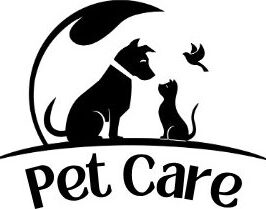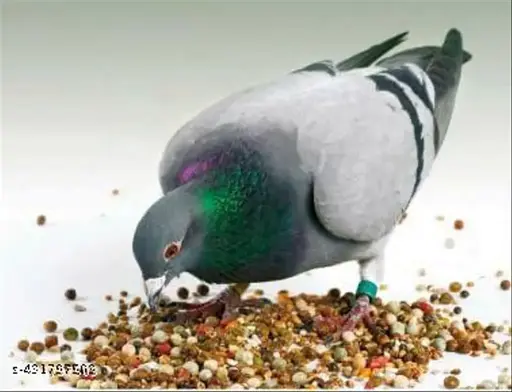Pigeons are among the most common and fascinating birds in the world. Whether you’re caring for domestic pigeons, racing pigeons, or simply feeding wild ones, their diet plays a vital role in their health, energy, and lifespan.
If you’re a beginner looking for clear guidance on what pigeons eat and how to feed them, this blog will walk you through everything you need to know about pigeon food, safe options, and feeding tips.
1. Why Proper Food is Important for Pigeons
Just like humans, pigeons need a balanced diet to stay active and healthy. A poor diet can lead to:
- Weak immune system
- Feather loss or dull plumage
- Low energy levels
- Digestive issues
On the other hand, the right food provides:
- Strong bones and muscles
- Healthy feathers
- Better breeding success
- Longer life expectancy
2. What Do Pigeons Eat in the Wild?
In nature, pigeons feed on a wide variety of food sources:
- Seeds and grains like millet, corn, and wheat
- Small insects for protein
- Fruits and berries
- Green leaves
When keeping pigeons at home, try to replicate this natural diet for the best health outcomes.
3. Best Food for Domestic Pigeons
Here’s a breakdown of safe and healthy pigeon food options:
Grains & Seeds (Main Diet)
- Corn
- Wheat
- Millet
- Barley
- Sorghum
- Rice
👉 These make up about 70–80% of a pigeon’s diet.
Legumes & Protein Sources
- Lentils
- Peas
- Chickpeas
- Beans
👉 Essential for muscle growth and strength, especially for racing or breeding pigeons.
Fresh Vegetables & Greens
- Spinach
- Kale
- Lettuce
- Carrots (grated)
- Cabbage
👉 Provide vitamins and minerals for immunity and feather health.
Fruits (as treats)
- Apples (no seeds)
- Pears
- Bananas
- Berries
- Grapes
👉 Feed in moderation due to natural sugar content.
Supplements & Minerals
- Grit (helps with digestion)
- Cuttlefish bone (for calcium and beak strength)
- Vitamin drops (when recommended by a vet)
4. Foods You Should Never Feed Pigeons
Not all human foods are safe for pigeons. Avoid giving:
- Bread (low in nutrients, causes obesity)
- Chocolate
- Caffeine
- Alcohol
- Avocado
- Salty or fried foods
- Onion & garlic
👉 These can cause serious health problems or even be fatal.
5. How Much Should You Feed Pigeons?
The quantity of food depends on the pigeon’s age, size, and activity level.
- Adult pigeons: About 30–50 grams of food per day
- Racing pigeons: May need extra protein and energy-rich grains
- Baby pigeons (squabs): Need special care with soft, easily digestible food or crop milk (fed by parents)
Always monitor your pigeon’s weight and behavior to adjust feeding portions.
6. Feeding Tips for Beginners
To keep your pigeons healthy and happy, follow these simple tips:
- Provide variety: Mix grains, legumes, and greens for balanced nutrition.
- Fresh water: Change drinking water twice daily.
- Clean feeding bowls: Prevent bacteria and infections.
- Avoid overfeeding: Leads to obesity and poor flying ability.
- Observe eating habits: Changes in appetite may indicate illness.
7. Feeding Schedule for Pigeons
A consistent routine helps pigeons stay healthy:
- Morning (7–9 AM): Main grains and legumes
- Afternoon (1–3 PM): Fresh vegetables or greens
- Evening (5–6 PM): Small treat of fruits or seeds
👉 Stick to fixed timings for better digestion and habits.
8. Signs of a Healthy, Well-Fed Pigeon
When your pigeon is getting proper food, you’ll notice:
- Shiny, smooth feathers
- Active flying and playful behavior
- Strong beak and claws
- Clear eyes
- Healthy droppings
If you notice lethargy, feather loss, or poor appetite, consult a vet immediately.
9. Common Mistakes to Avoid
Beginners often make these mistakes:
- Feeding only bread or rice
- Ignoring protein-rich food
- Using dirty food containers
- Overfeeding treats and fruits
- Not providing grit or calcium supplements
Avoiding these mistakes can add years to your pigeon’s life.
10. Special Care for Baby Pigeons (Squabs)
Baby pigeons (called squabs) require extra care in their diet:
- Parents usually feed them “pigeon milk” (a nutrient-rich secretion).
- If hand-feeding, use special baby bird formula.
- Feed small, soft meals multiple times a day.
- Keep them warm, as they cannot regulate body temperature.
Final Thoughts
Feeding pigeons the right food is the foundation of their health and happiness. From nutrient-rich grains to fresh vegetables and occasional fruits, a balanced diet ensures your pigeons stay active, strong, and beautiful.
Whether you’re feeding racing pigeons, pet pigeons, or wild ones, following these pigeon food tips will help you become a responsible and caring bird lover.

